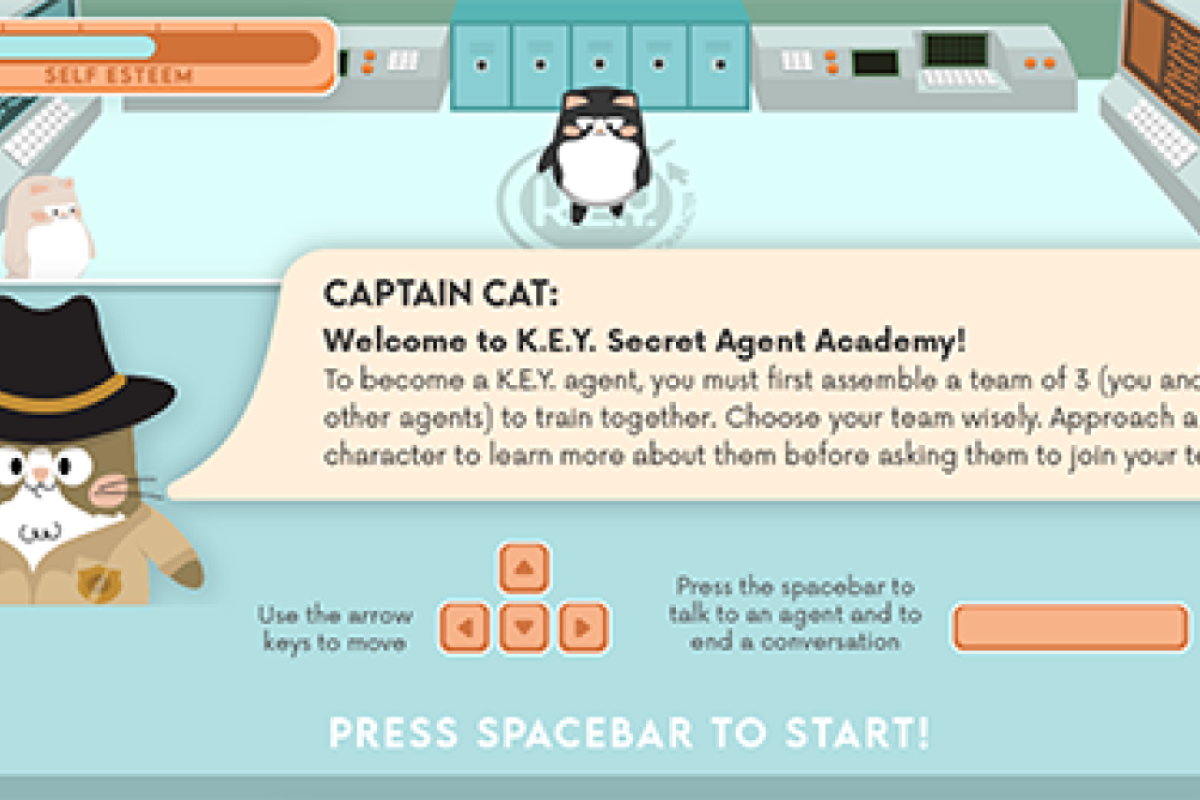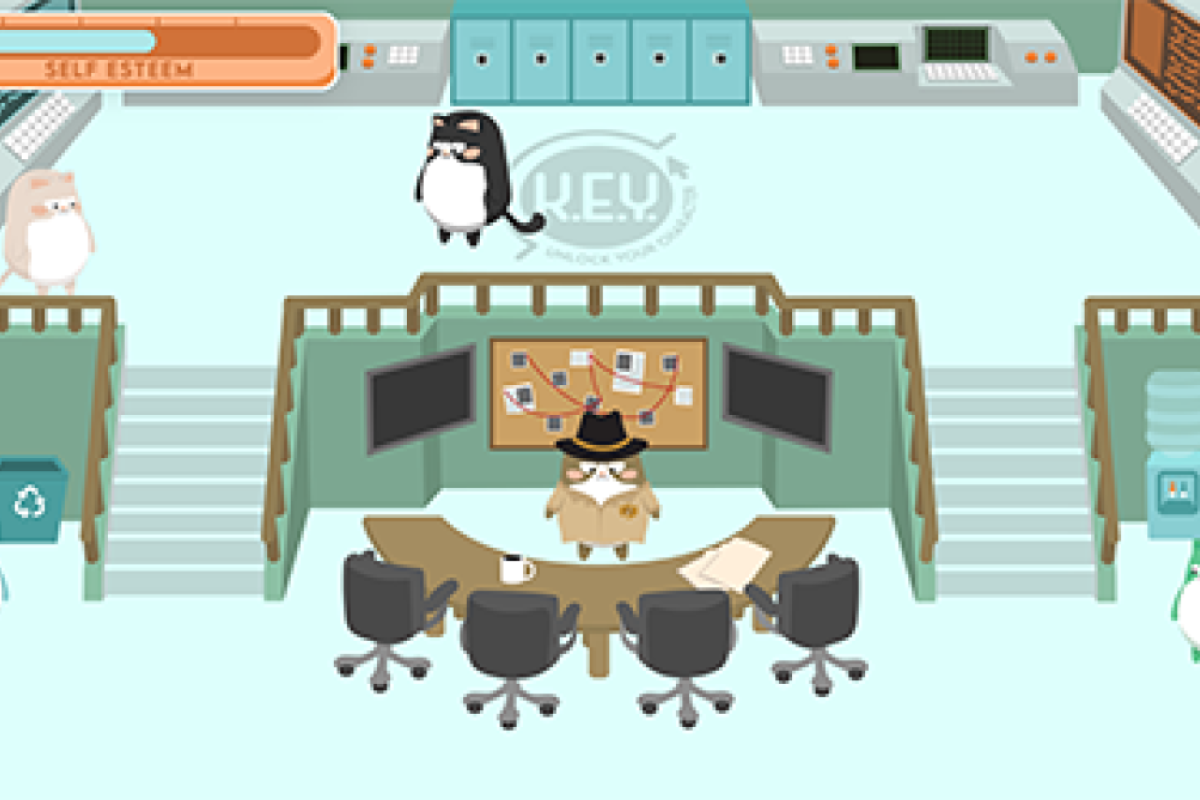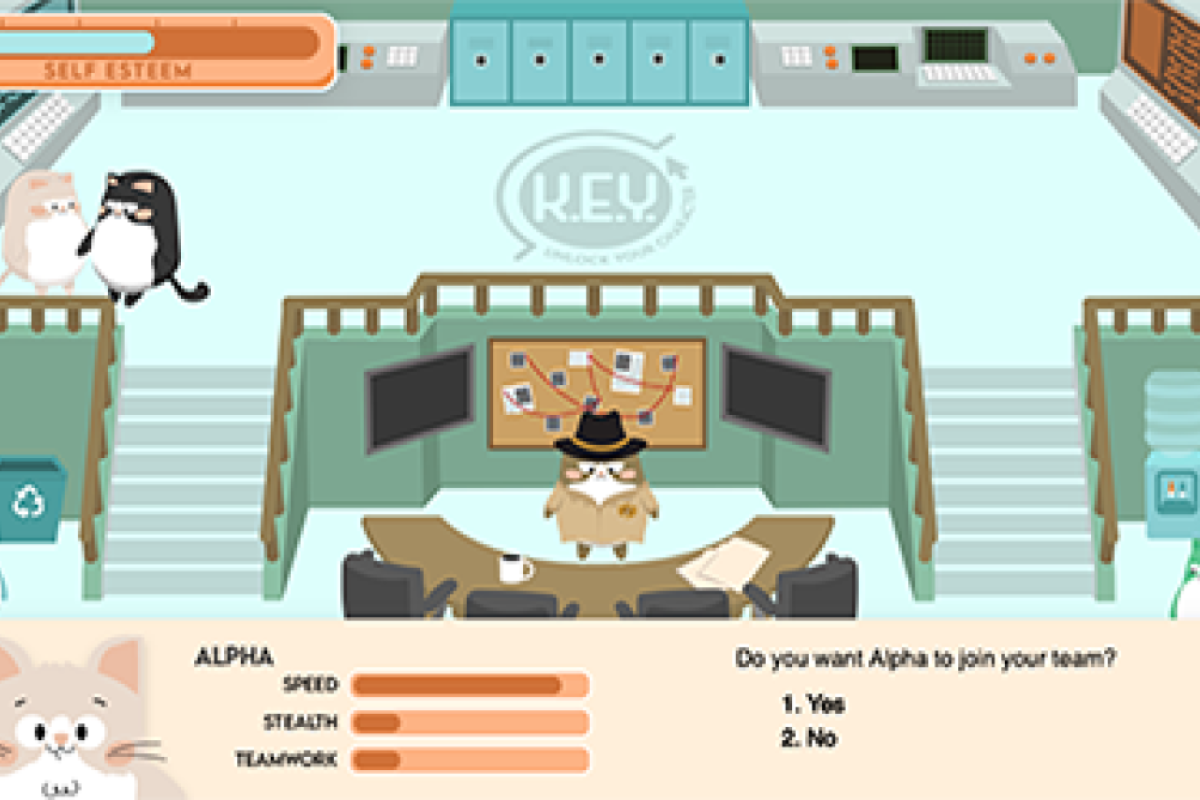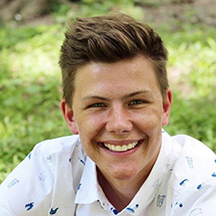Confronting incel isolation before it starts

K.E.Y. Academy won first place in the McCain Institute's Peer-to-Peer Protective Project competition.
Last year, ASU’s McCain Institute for International Leadership announced the Peer-to-Peer: Protective Project. Teams of students from universities across the U.S. were invited to submit projects to address the twin crises of hate speech and related violence and compete for cash awards to further their work.
Eight teams submitted projects, and three — Arizona State University, Johns Hopkins University and Missouri State University — made their presentations for a panel of judges in a virtual, final round streamed live on YouTube on June 23.
WATCH: Highlights from the Peer-to-Peer: Protective Project final
Jordan Moore is president of the Missouri State team that won first place in the “P4” competition. A marketing major, Moore graduated in the spring and has entered the job market in the San Francisco area, but he continues to be involved with the Missouri State team that created K.E.Y. — Kindness Empowers Youth.
K.E.Y. is described as “an experiential learning program focused on teaching emotional intelligence, self-concept and healthy coping skills to third-, fourth- and fifth-grade students.” K.E.Y. was created as a strategy for preemptively addressing violence arising within the subculture known as incel. Incels are self-identified involuntary celibates, “... an online community of predominately heterosexual men whose self-worth is defined by perceived physical and sexual inadequacy,” according to the K.E.Y. website.
Jordan Moore, president of the Missouri State P4 team
QUESTION: How did your team create this project?
ANSWER: Missouri State has a class for credit in which we set up an advertising team. The university has a pretty strong reputation in advertising and marketing, so you know the time commitment the school expects; a lot more than just the advertising classes you take. There's even an interview process to get in. We set ourselves up as an advertising agency and met on Tuesdays and Thursdays for the entire spring semester. We had a creative team, a research team, a strategy team, a PR team, and then we had cross-functional groups that worked with team leaders. Once COVID-19 happened we moved to virtual meetings of small groups with team leaders, and then we could be with our larger groups over Zoom as well.
Q: How many people were involved on the team?
A: We had 13 students on the team, and then we had help from other students at Missouri State for developing the game. (The student-facing aspect of K.E.Y. is a secret-agent game, K.E.Y. Academy.)
Q: How did you arrive at the concept?
A: After we chose incel ideology as our focus, our research found that stages of emotional intelligence are all learned in third-, fourth- and fifth-graders, so we knew that would be a prominent part of the strategy behind our campaign. But we didn’t want to talk about incel violence directly to kids that age, so a big portion of the campaign was going to have to be educating the community. A lot of our community had never heard the term incel violence, or didn't actually understand what it was. If our primary target market was third-, fourth- and fifth-graders, that meant going into schools, where we could start educating the teachers and explaining why this is important. And we would need to gradually explain it to parents in a way that didn't frighten them, saying not all these kids are going to grow up to be incels, but all these kids can benefit from this learning program. When we approached it that way, and with our engaging interactive characters that are relatable to all the kids and inviting and collaborative for the parents, everything came full circle and we were able to leave the strategizing stage and start creating.
WATCH: “Incite Insight,” the P4 entry from an Arizona State University team that also addresses violence spawned within incel culture, won second place.
Q: What were some of the obstacles that you ran across along the way?
A: Besides COVID, our biggest obstacle was the lack of research. Incel is a growing ideology, but there’s little research out there. When we talked to Dr. (John) HorganJohn Horgan is a distinguished professor of psychology at Georgia State University and an authority on violent extremism., he was able to help us understand where incel violence comes from, the history behind it and where he believes it's going. He helped us develop our strategy.
Then we assumed we were going to get a lot of pushback from the community or the teachers, explaining what incels are, but because we did it in such a gradual way a lot of the teachers seemed to fully understand what it was and why this project would have a beneficial purpose, so we were surprised and thankful for the level of support in the community.
Q: Why is there so little research into what you describe as a big problem?
A: It's a new topic. There’s research at the higher education and professional levels that is going to slowly work its way down to knowledge for the local community, so a lot of professionals are starting to be more cohesive and understanding of incel violence. But because it's so new and so different, it's tough for global communities to understand it. That’s why experts like Dr. Horgan and a few others are taking on the responsibility of diving into this research.
Q: What responses did you get from teachers?
A: They were very engaged. They saw that K.E.Y. fits a need that the schools couldn’t. A lot of schools teach programs of kindness for one another; a lot of anti-bullying campaigns. Some of those have been successful, some have not. But a lot of schools are missing a program that teaches children kindness within themselves, so that they fully understand that each person is a unique individual. It's the difference in focus between their emotional and internal strength versus external qualities. Teachers were really energetic to start teaching these soft skills. Their biggest request for us was that our lesson plans include vocabulary and writing they're already teaching, so our lessons include vocabulary appropriate for each grade level, to complement lesson plans teachers are already using.
Q: How did parents respond?
A: They loved the use of relatable characters — the K.E.Y. Cat characters we created — and how the kids can unlock things along the way. They see that being very successful with their kids. But the biggest takeaway from parents was that we allow them to be as hands-on or hands-off in this program as they want to be. Many of them told us, “Before COVID-19, I liked to be very hands-on, very active, but now because of COVID-19 I have to work at home and I have to keep the kids occupied, so programs they can do by themselves are also very beneficial.” We included instructions and lists of objectives for parents if they want to be hands on and continue furthering the conversation, but the kids are able to complete all of our lesson plans and online games by themselves on the website.
Q: Did you have advice from education faculty or family development faculty at Missouri State?
A: We realized a lot of this was going to be education and lesson plans, and we’re all marketing and advertising majors! We understand digital strategy and how to create a website and social media ads, but we were lacking the knowledge for creating full lesson plans. We had the help of a panel of local elementary school teachers for advice on what teachers are looking for and how lesson plans are laid out. We also talked with Missouri State education majors to figure out what has been working well in the field and what we should do differently.
Q: What happens now? What will you do with the award money?
A: We'll put it back into the campaign to further develop our game and lesson plans. We’re very focused on game development right now, building it out and making it more engaging for the kids. We just applied for a grant through the Department of Homeland Security, but we’re also looking for other grants to apply for — local grants in the St. Louis and Springfield areas or statewide in Missouri. We're in the process of becoming a 501c3, and team members are in conversations with educators in the Springfield area and elsewhere in Missouri to hopefully begin implementing these ideas in the fall.
Video courtesy K.E.Y. Academy team, Missouri State University
Written by Erik Ketcherside for the McCain Institute





